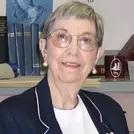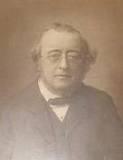Planning worship?
Check out our sister site, ZeteoSearch.org,
for 20+ additional resources related to your search.
- |
User Links
Person Results
John Bacchus Dykes

1823 - 1876 Person Name: John B. Dykes Composer of "VOX DILECTI" in Elmhurst Hymnal As a young child John Bacchus Dykes (b. Kingston-upon-Hull' England, 1823; d. Ticehurst, Sussex, England, 1876) took violin and piano lessons. At the age of ten he became the organist of St. John's in Hull, where his grandfather was vicar. After receiving a classics degree from St. Catherine College, Cambridge, England, he was ordained in the Church of England in 1847. In 1849 he became the precentor and choir director at Durham Cathedral, where he introduced reforms in the choir by insisting on consistent attendance, increasing rehearsals, and initiating music festivals. He served the parish of St. Oswald in Durham from 1862 until the year of his death. To the chagrin of his bishop, Dykes favored the high church practices associated with the Oxford Movement (choir robes, incense, and the like). A number of his three hundred hymn tunes are still respected as durable examples of Victorian hymnody. Most of his tunes were first published in Chope's Congregational Hymn and Tune Book (1857) and in early editions of the famous British hymnal, Hymns Ancient and Modern.
Bert Polman
John Bacchus Dykes
Thomas T. Lynch

1818 - 1871 Author of "The Lord is rich and merciful" in Elmhurst Hymnal Lynch, Thomas Toke, was born at Dunmow, Essex, July 5, 1818, and educated at a school at Islington, in which he was afterwards an usher. For a few months he was a student at the Highbury Independent College; but withdrew, partly on account of failing health, and partly because his spirit was too free to submit to the routine of College life. From 1847 to 1849 he was Minister of a small charge at Highgate, and from 1849 to 1852 of a congregation in Mortimer Street, which subsequently migrated to Grafton Street, Fitzroy Square. From 1856 to 1859 he was laid aside by illness. In 1860 he resumed his ministry with his old congregation, in a room in Gower Street, where he remained until the opening of his new place of worship, in 1862, (Mornington Church), in Hampstead Road, London. He ministered there till his death, on the 9th of May, 1871.
The influence of Lynch's ministry was great, and reached far beyond his own congregation (which was never large), since it included many students from the Theological Colleges of London, and thoughtful men from other churches, who were attracted to him by the freshness and spirituality of his preaching. His prose works were numerous, beginning with Thoughts on a Day, 1844, and concluding with The Mornington Lecture, 1870. Several of his works were published after his death. His Memoir, by W. White, was published in 1874.
Lynch's hymns were published in:—
The Rivulet: a Contribution to Sacred Song, London., Longman, 1855, 2nd ed., 1856. This was enlarged by an addition of 67 hymns in 1868.
From the first edition of The Rivulet, 1855, the following hymns have come into common use:—
1. All faded is the glowing light. Second Advent.
2. Be Thy word with power fraught. Before Sermon.
3. Christ in His word draws near. Holy Scripture.
4. Dismiss me not Thy service, Lord. Work for Christ.
5. Gracious Spirit, dwell with me. Holy Spirit's presence desired.
6. How calmly the evening once more is descending. Evening. Sometimes "How calmly once more the night is descending."
7. I give myself to prayer. Prayer in Trouble.
8. Lord, on Thy returning day. Public Worship.
9. Lord, when in silent hours I muse. Resignation.
10. Love me, O Lord, forgivingly. Resignation.
11. Mountains by the darkness hidden. Resignation.
12. Now have we met that we may ask. Public Worship.
13. O, break my heart; but break it as a field. Penitence desired.
14. O Lord, Thou art not fickle. Sympathy.
15. O where is He that trod the sea. Christ Walking on the Sea.
16. Oft when of God we ask. Trust in Trial.
17. Rise, He calleth thee, arise. Blind Bartimaeus.
18. Say not, my soul, from whence. Resignation.
19. Where is thy God, my soul? Resignation and Hope.
There are also from the 1856 and 1868 eds. the following:—
20. A thousand years have come and gone. Christmas.
21. Lift up your heads, rejoice; (1856.) Advent.
22. Praying by the river side. Holy Baptism.
23. The Lord is rich and merciful. Have Faith in God.
24. There is purpose in this waste. Easter.
Lynch's hymns are marked by intense individuality, gracefulness and felicity of diction, picturesqueness, spiritual freshness, and the sadness of a powerful soul struggling with a weak and emaciated body. Although The Rivulet was published for use by his own congregation as a supplement to Watts, more than one half of the hymns were designed for private use only, but were not so distinguished in the work. Its publication caused one of the most bitter hymnological controversies known in the annals of modern Congregationalism. Time, however, and a criticism, broader and more just, have declared emphatically in favour of his hymns as valuable contributions to cultured sacred song. [Rev. W. Garrett Horder]
--John Julian, Dictionary of Hymnology (1907)
==================
Lynch, T. T., p. 705, ii. Other hymns by him in recent books are:—
1. My faith it is an oaken staff. Faith in Christ. In the Rivulet, 1855, p. 78.
2. Together for our country now we pray. National, In the Rivulet, 1868, p. 170. [Rev. James Mearns, M.A.]
--John Julian, Dictionary of Hymnology, New Supplement (1907)
Thomas T. Lynch
William Croft

1678 - 1727 Person Name: W. Croft Composer of "ST. MATTHEW" in Common Praise William Croft, Mus. Doc. was born in the year 1677 and received his musical education in the Chapel Royal, under Dr. Blow. In 1700 he was admitted a Gentleman Extraordinary of the Chapel Boyd; and in 1707, upon the decease of Jeremiah Clarke, he was appointed joint organist with his mentor, Dr. Blow. In 1709 he was elected organist of Westminster Abbey. This amiable man and excellent musician died in 1727, in the fiftieth year of his age. A very large number of Dr. Croft's compositions remain still in manuscript.
Cathedral chants of the XVI, XVII & XVIII centuries, ed. by Edward F. Rimbault, London: D. Almaine & Co., 1844
William Croft
E. J. Hopkins

1818 - 1901 Person Name: Edward J. Hopkins, 1818-1901 Composer of "ST. ELWYN" in The Sanctuary Hymnal, published by Order of the General Conference of the United Brethren in Christ Dr Edward John Hopkins MusDoc United Kingdom 1818-1901. Born at Westminster, England, the son of a clarinetist with the Royal Opera House orchestra, he became an organist (as did two of his brothers) and a composer. In 1826 he became a chorister of the Chapel Royal and sang at the coronation of King William IV in Westminster Abbey. He also sang in the choir of St. Paul’s Cathedral, a double schedule requiring skill and dexterity. On Sunday evenings he would play the outgoing voluntary at St. Martin’s in-the-field. He left Chapel Royal in 1834 and started studying organ construction at two organ factories. He took an appointment at Mitcham Church as organist at age 16, winning an audition against other organists. Four years later he became organist at the Church of St. Peter, Islington. In 1841 he became organist at St. Luke’s, Berwick St., Soho. Two Years later he was organist at Temple Church, which had a historic organ (built in 1683). He held this position for 55 years. In 1845 he married Sarah Lovett, and they had four sons and five daughters. He was closely associated with the Bach Society and was organist for the first English performances of Bach’s St. Matthew Passion. In 1855 he collaborated with Edward Rimbault publishing “The organ, its history and construction” (3 editions 1855-70-77). In 1864 he was one of the founders of the “College of organists”. In 1882 he received an honorary Doctorate of Music from the Archbishop of Canterbury. He composed 30+ hymn tunes and some psalm chants, used by the Church of England. He died in London, England.
John Perry
E. J. Hopkins
Henry Baker
1835 - 1910 Person Name: H. Baker, Mus. Bac. Composer of "LYNCH" in Worship Song Henry Baker, Mus. Bac., son of the Rev. James Baker, Chancellor of the diocese of Durham; born at Nuneham, Oxfordshire; educated at Winchester School; graduated Bachelor in Music at the University of Oxford in 1867. He also worked as a civil engineer.
Scottish Church Music, its composers and sources by James Love; William Blackwwod and Sons, Edinburgh and London, 1891
Henry Baker
Annabeth McClelland Gay

1925 - 2020 Person Name: Annabeth McClelland Gay, 1925- Composer of "SHEPHERDS' PIPES" in Pilgrim Hymnal Annabeth McClelland Gay was born in 1925 in Ottawa, Illinois, where her father was the pastor of the Presbyterian church. She was educated at Knox College (B.M.E. 1947) and Union Theological Seminary's School of Sacred Music, New York City(M.S.M. 1949). She has been choir director in the various churches her husband has served as pastor.
The tune SHEPHERDS' PIPES was written by Annabeth McClelland Gay in 1952 as the setting for "The Lord Is Rich and Merciful" in the Pilgrim Hymnal (1958). Every Christmas, the Gays sent an original Christmas song to their friends. In 1952 it was Annabeth's turn to compose the music for which her husband would supply the words. "This tune 'dropped out of the blue' one evening while I was at the piano. Bill said, 'Sounds like shepherd pipes,' and ran for the Bible dictionary to see if such were used by the shepherds in Palestine, and the hymn tune was born.“
--www.firstpresbyterianfairborn.org/lifeline
Annabeth McClelland Gay, 95, Lincoln, died 29 April 2020 at Eastmont Towers. Annabeth was born on 18 April 1925 to the Rev. Charles McClelland and Barbara Nessen McClelland in Ottawa, IL. She was the Valedictorian of her high school class and went to Knox College in Galesburg, IL, graduating in 1947 (Phi Beta Kappa) with a degree in music, specializing in voice and organ. She then attended Union Theological Seminary in New York, graduating in 1949 with a Master's Degree in Sacred Music. It was at Union that she met William Gay, her husband of 60 years. They married in 1949 and spent 40 years serving U.C.C. churches together in rural Ohio. During this time, she was very active in leading church music workshops throughout Ohio and adjoining states. She also gave uncountable organ, piano, and voice lessons to young and old. Annabeth was, above all, a hymnodist. With William, she composed a Christmas song or hymn every year that they sent to family and friends. Several of these were widely published and one, “Carol of Hope,” has been included in a wide variety of hymnals. Annabeth is survived by her son Timothy (Chris) of Lincoln, a brother, the Rev. Robert McClelland of St. Louis, MO, two grandsons, Frederick (Sara) of Ft. Worth, TX, and Bertram (Stacey Rickers) of Culver City, CA, and two great-grandaughters, Harriet and Beatrice, of Ft. Worth. She was preceded in death by her parents, husband, and sister, Charlotte Petersen. Memorial gifts may be made to the U.C.C. Mission Boards through First Plymouth Church or to Eastmont Towers, Lincoln. A memorial service will be held at a future date to be announced. Condolences and personal reflections may be left online at www.roperandsons.com.
--www.newsbreak.com/news/1558740983045/annabeth-mcclelland-gay
Annabeth McClelland Gay
Alfred R. Gaul

1837 - 1913 Person Name: A. R. Gaul Composer of "FILIUS DEI" in The Hymnal of Praise
Alfred R. Gaul
C. W. Poole
1828 - 1924 Person Name: Clement William Poole (1828-1924) Composer of "PETERSHAM" in The Hymnal
C. W. Poole


 My Starred Hymns
My Starred Hymns


